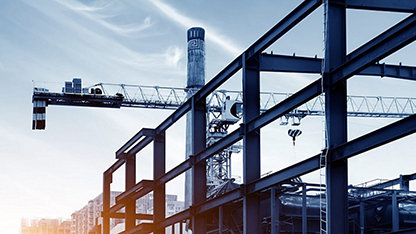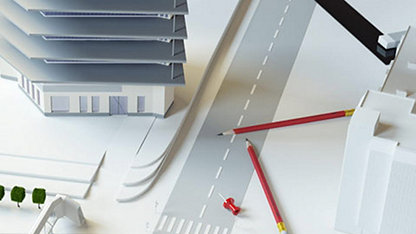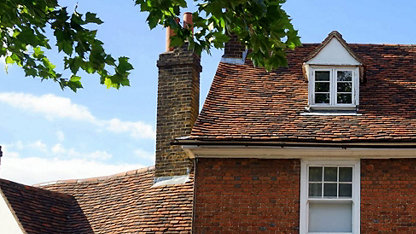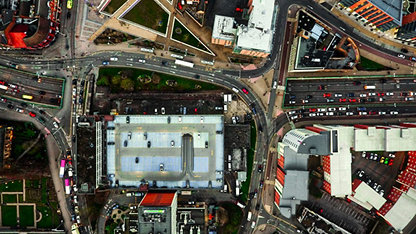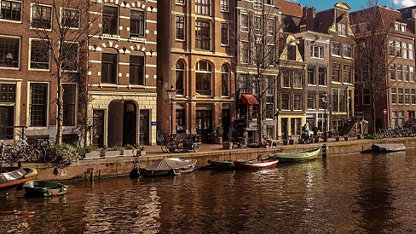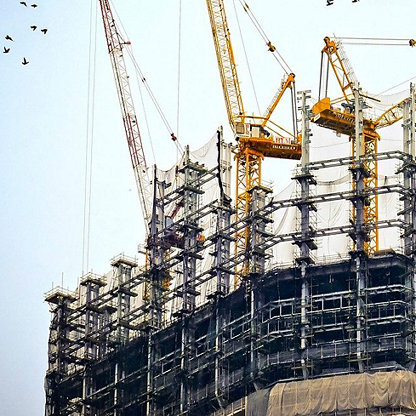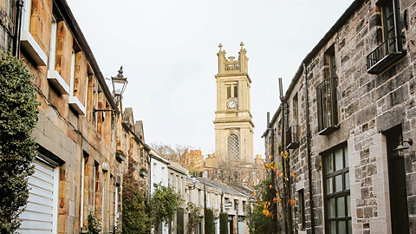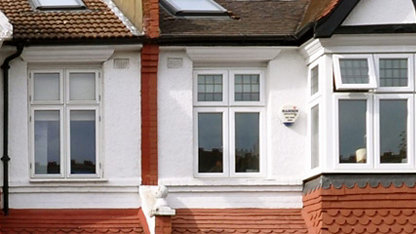RICS is an active member of the UN Global Alliance for Buildings and Construction (GlobalABC). Founded at COP21, hosted by the United Nations Environment Programme and with 280 members, including 39 countries, the Global Alliance for Buildings and Construction is the leading global platform for all buildings stakeholders committed to a common vision: A zero-emission, efficient and resilient buildings and construction sector.
With the built environment estimated to be responsible for around 40% of global carbon emissions. RICS working with members and key stakeholders across the built and natural environment plays a vital role in ensuring we collectively reduce our carbon consumption across the built and natural environment lifecycle.
Our focuses are to help decarbonise the built environment, build climate resilience, promote, and protect biodiversity and embed circular economy principles.
Leading and influencing on sustainability
Between 7-8 March 2024, RICS participated at the inaugural Buildings and Climate Forum in Paris, organised by France, UNEP and GlobalABC. Our participation at the Forum supported our goal to lead and influence on sustainability.
The Forum provided a unique opportunity to engage with ministers leading on decarbonisation in our sector worldwide, and gain endorsement of our sustainability initiatives including our whole life carbon assessment (WLCA) standard.
To facilitate understanding, endorsement and ultimately adoption of the WLCA standard in markets across the world we have released four new guides. These detail how implementation of this standard can achieve the much-needed consistent approach measuring carbon. Download the guides here.
Sustainability standards and guidance
RICS are focused on enabling change to address the role the built and natural environment play in emitting carbon emissions. We have world leading standards – and as a regulated body our members follow and use these globally.
Explore isurv
With exclusive content including sustainable procurement and key concepts.

COP28
In 2023, RICS participated at COP 28 as a UN-accredited observer organisation, representing more than 134,000 professionals working in the built environment globally. Ahead of COP28 we launched multiple workstreams centred around progressing sustainable practices in the built environment and showcasing our members work.
Member case studies
RICS Student Competition 2023
RICS launched a student competition where we invited school and university students from around the world to participate and share their innovative ideas on how we can accelerate the decarbonisation of the built. We asked them to propose a practical solution in one of five key areas; policy, technology, society, finance or skills.
Research and insights
Decarbonising the built environment: policy reform papers
We have released policy reform reports which identify opportunities to accelerate the decarbonisation of the built environment in key global markets. We call on leaders in the UK, North America, Hong Kong, India, the European Union and the EU to make changes with urgency in order to meet their own targets for decarbonisation.
Working with the industry
We’re at the forefront of collaborating with key industry stakeholders across both the natural and built environment to lead the charge and increase innovation in reducing our collective carbon footprint.
As a participant of the UN Global Compact, the world’s largest corporate sustainability initiative, RICS is committed to its Ten Principles and the wider UN Sustainable Development Goals (SDGs). We aim to drive awareness and address the world’s most pressing environmental and social challenges in the land, construction, real estate and infrastructure sectors.
Our Communication on Engagement report for the UN Global Compact highlights the key projects that represent some of the actions RICS has taken to drive a more sustainable future in the built and natural environment.
Published date: 02 July 2024
Published date: 22 March 2022
RICS, in collaboration with organisations covering a breadth of the UK built environment, have launched the Built Environment Carbon Database.
BECD is free to use and provides a library of product carbon factors and a place to report results of whole life carbon assessment for buildings. We are now working to improve BECD and widen its scope by aligning with the new life cycle assessment reporting formats introduced by the second edition of the RICS WLCA standard.





